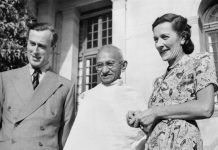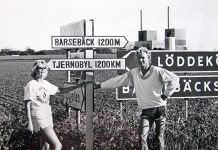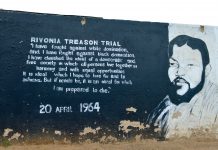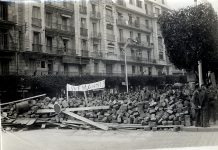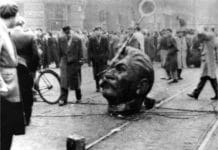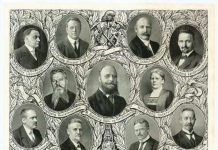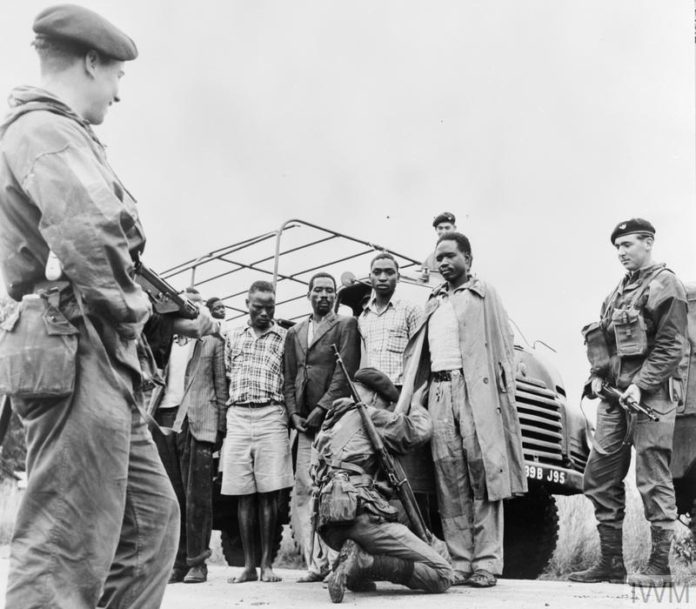
Socialistisk Biblioteks Tidslinje med links til begivenheder og personer i 1952.
Se også Index over personer, organisationer/partier og værker (som bøger, malerier, mm.), steder, begivenheder, mv., der er omtalt på hele Tidslinjen, titler og indhold på emnelisterne osv.
4. januar 1952
Den 23-årige medicinstuderende Ernesto Guevara beslutter at udskyde sidste semester af medicinstudiet og starter sammen med den 29-årige Alberto Granado en tur især på motorcyckel, men alle rejseformer, op gennem Sydamerika, til Centralamerika (og fly til Miami, USA) – og besøgene på historiske steder for før-koloniale folkeslag sammen med oplevelsen af den amerikanske dominans i landenes økonomi, og besøgene hos venstrefløjene i et Sydamerika i oprør giver ham pan-amerikansk udsyn og bliver en anti-imperialistisk ‘dannelsesrejse’. Efter 8.000 km. kom han tilbage til Buenos Aires i Argentina 31. juli 1952. 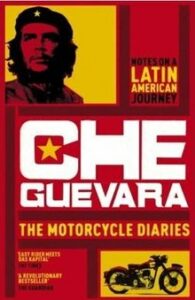
Dagbogen ‘Motorcykel dagbog’ bliver først udgive på engelsk i 1995, og bliver grundlag for filmen med García Bernal i rollen som den unge Guevara.
Rejse gennem Sydamerika: optegnelser. Af Ernesto Che Guevara (Lindhardt og Ringhof, 2000, 143 s.). 2. udgave, 2002 (L&R Pocket). Spanske titel: Un diario per un viaggio in motocicletta.
“Che Guevaras dagbøger for otte måneders rejse op gennem Sydamerika på motorcykel i 1951.” Filmatiseret som ‘Motorcykel Dagbog’ (‘Motorcycle Diaries’, instr. Walter Salles, 2003).
Se:
- The Motorcycle Diaries (book) (Wikipedia.org).
- The Motorcycle Diaries (film) (Wikipedia.org).
On the road with the young Che. By Lance Selfa (Socialist Worker, US, Issue 515, October 8, 2004). “Some may criticize Salles’s choice to focus on the more romantic, politically naïve Guevara. But in showing why someone like the young Ernesto could become a revolutionary, the film is most affecting and effective.”
When more could have been more. By Ramón Valle (World Socialist Web Site, 14 January 2005). “Salles’s portrayal of Che as a solemn, formal, and almost beatific youth traps the director in a bland liberal humanism and does not permit him to probe into social or even psychological questions, least of all Che’s own politics.”
Se også personlisten Che Guevara 1928-1967 (Socialistisk Bibliotek).
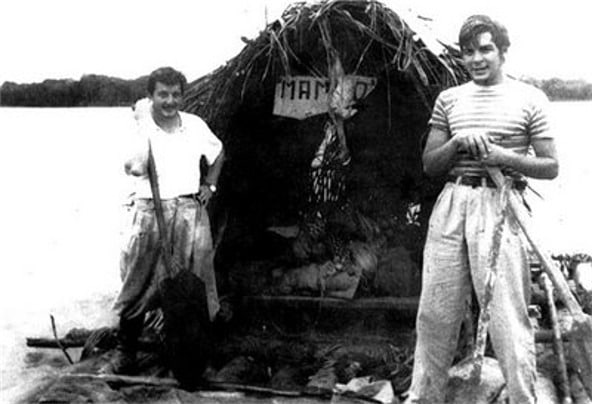
Se også:
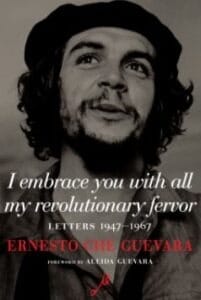
”I embrace you with all my revolutionary fervor”: An insightful new book. By Geoff Mirelowitz (World-Outlook, November 12, 2021). Review of ”I embrace you with all my revolutionary fervor”: Letters 1947-1967 by Ernesto Che Guevara’ with a foreword by Aleida Guevara (Seven Stories Press, 2021, 384 p.).
“… he was 18 years old and set off on the first of his travels with friends across Latin America. ‘Incidentally, I had no social awareness as an adolescent and I did not participate in any political or student struggles in Argentina’, Che wrote in a 1963 letter. That changed as he became acquainted with the economic, social, and political conditions of the continent.”
9. marts 1952
Den russiske revolutionære Alexandra Michajlovna Kollontaj dør i Moskva. (Født i Sankt Petersborg (efternavn Domontovitj) den 31. marts 1872, se denne dato for links.
28. marts 1952
Den faglige venstrefløjsaktivist og bl.a. formand for Havnearbejdernes Klub af 1980 i København, Kjartan “Lydia” Gudmundsson fødes iReykjavik i Island. (Dør i Valby 6. december 2020 , se denne dato for links m.m.)
4. april 1952
Villy Søvndal fødes i Linde ved Struer. Formand for Socialistisk Folkeparti 2005-2012. Udenrigsminister i regeringen Helle Thorning-Schmidt I fra oktober 2011.
Se:
- Villy Søvndal (Denstoredanske.dk)
- Villy Søvndal (Wikipedia.dk)
Se også på Socialistisk Bibliotek:
Emnelisten: Socialistisk Folkeparti – SF 1959-2009
9. april 1952
Militærjuntaen i Bolivia væltes, og den bolivianske “februar-revolution” begynder.
Se:
- Bolivia (Leksikon.org)
- Bolivian National Revolution (Wikipedia.org)
The Bolivian National Revolution 1952-1964 (Latin American Studies). “In July 1952, the government established universal suffrage, with neither literacy nor property requirements. In the first postrevolutionary elections in 1956, the population of eligible voters increased from approximately 200,000 to nearly 1 million voters. The government also moved quickly to control the armed forces …”
Using the Cold War: The Truman administration’s response to the Bolivian national revolution. By Benjamin Dangl (Upsidedownworld.org, 6 May 2013). “This essay explores the ways in which President Harry Truman’s administration undermined the historic nationalist changes that took place during the National Revolution in Bolivia.”
Sixty years of the Bolivian revolution – what lessons can be learned? By Jorge Martin (In Defence of Marxism, 12 April 2012). “On April 9, 1952 Bolivia witnessed one of the deepest and most proletarian revolutions in the history of the American continent. In the space of a few hours, factory workers, the population of the cities and armed miners, defeated and humiliated the bourgeois state apparatus and physically destroyed the army of the ruling class, which would take years to be re-established.”
Bolivia 1952 – a glimpse of workers’ power (Socialist Worker, Issue 2297, 3 April 2012). “Sixty years after the Bolivian revolution, Steve Henshall shows how workers beat the army.”
Anti-capitalism or anti-imperialism? Interwar authoritarian and fascist sources of a reactionary ideology: The case of the Bolivian MNR (Insurgent Notes, Issue 3, March 2011; online at Libcom.org). “Loren Goldner’s detailed account and analysis of the Bolivian Revolutionary Nationalist Movement (MNR) which was the key player in the 1952 national revolution, and which was supported by the left despite its pro-fascist, corporatist tendencies.”
Bolivia: The revolution derailed? The crisis of 1952 and the Trotskyist movement (Revolutionary History, Vol.4, No.3, Summer 1992, p.1-87, online at Marxists Internet Archive). Theme with 7 articles. Scroll down.
See also Supplement: Bolivia: The revolutionary events of 1952-54 (Marxists Internet Archive)
Revolution in Bolivia. By John Newsinger (International Socialism, Issue 18, Winter 1983, p.60–86). “In Bolivia, the working class provided the force that in 1952 overthrew the government, destroyed the army and swept away the ruling class. The working class carried to power a populist petty bourgeois revolutionary government that once installed was confronted with a situation of dual power and was reluctantly compelled to carry through extensive structural reforms.”
Social mobility and economic development: The vital parameters of the Bolivian Revolution (pdf). By C. Fred Bergsten (Journal of Inter-American Studies, July 1964, p.367-375; online at Latinamericanstudies.org). “In 1952, Bolivia experienced the most thorough-going social revolution in Latin America since the Mexican upheaval early in this century. In the twelve years which have followed, The Andean republic has made remarkable progress in breaking down centuries-old societal gaps and forging an integrated nation.”
Bolivia: The restrained revolution (pdf). By Richard W. Patch (Annals of the American Academy of Political and Social Science, March 1961, p.123-132; online at Latinamericanstudies.org). “A true revolution occurred in Bolivia in 1952, and its consequences continue to be strongly felt. The revolution triggered such extreme measures as nationalization of the tin mines, agrarian reform, neutralization of the army, and universal franchise, but the leaders of the revolutionary Nationalistic Revolutionary Movement are essentially moderates.”
Revolution and counter revolution in Bolivia: The great decade of class struggles. By Guillermo Lora (Fourth International, Vol.13, No.3, May-June 1952; online at Marxists Internet Archive). “We are happy to be able to present to. our readers this historical survey and political analysis of the volatile, revolutionary Bolivian proletariat.”
See also Part II: Class struggles in Bolivia (Ibid., Vol.13, No.4, July-August 1952)
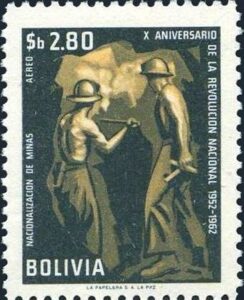
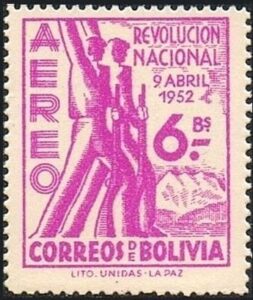
Se også på Socialistisk Bibliotek:
Tidslinjen 18. december 2005, om valget af lederen af Movimiento al Socialismo (MAS) Evo Morales til præsident i Bolivia.
6. maj 1952
Den italienske pædagog Maria Montessori dør. (født 31. august 1870).
Se på Socialistisk Bibliotek:
Tidslinjen: 6. januar 1907
21. august 1952
Sanger i The Clash, Joe Strummer, fødes som John Mellor i Ankara, Tyrkiet.
(Dør 22. december 2002 i Broomfield, Somerset, England).
Se på Socialistisk Bibliotek:
Personlisten: Joe Strummer
20. oktober 1952
I Kenya fører Mau Mau-oprøret mod den engelske kolonimagt til at den britiske kolonimagt erklærer undtagelsestilstand (til 1960), og til et af afkolonialiseringens hårdeste opgør, før Kenya bliver selvstændigt i 1963.
Se:
- Mau Mau-bevægelsen (Denstoredanske)
- Mau Mau-oprøret (Wikipedia.dk). Og længere på engelsk: Mau Mau Uprising.
Artikler:
Kenya Mau Mau uprising: when British imperialism conducted a colonial war of terror in ‘self-defence’. By Oliver Brotherton (In Defence of Marxism, 22 November 2023). “The Mau Mau uprising, known to the British at the time as simply the ‘Emergency’, was a poorly-equipped insurgency against the might of British imperialism, which was met with an unprecedented campaign of internment, torture, rape, forced labour and indiscriminate killing.”
Kenya has betrayed the heroes of its independence movement. By Jaclynn Ashly (Jacobin, June 29, 2022). “In the 1950s, Kenya’s Mau Mau fought against foreign rule — but its victories were claimed by a reactionary cabal after independence. jacobin spoke to several Mau Mau fighters, many now in their 80s and 90s, about their guerrilla war waged against the British.”
Uncovering the brutal truth about the British empire. By Marc Perry (The Guardian, 18 August 2016). Long read: “The Harvard historian Caroline Elkins stirred controversy with her work on the crushing of the Mau Mau uprising. But it laid the ground for a legal case that has transformed our view of Britain’s past.”
Hearts and minds: The myth and reality of British counter-insurgency. By John Newsinger (International Socialism, Issue 148, Autumn 2015). “… the militants turned away from the moderate Kenyatta and began organising a secret underground revolutionary movement, centred on Nairobi, a movement that the British were to christen the Mau Mau.” Scroll down to section: Kenya.
Britain’s brutal legacy in Kenya (Socialist Worker, Issue 2384, 17 December 2013). “Fifty years after Kenyan independence Ken Olende looks at the crimes of British colonialism, the Mau Mau rebels who fought back, and their betrayal by Kenya’s new rulers.”
Britain’s gulag in Kenya. By Shaun Harkin (SocialistWorker.org, October 2, 2013). “The British government has apologized for torture when it was the colonial power in Kenya. But we should never forget the crimes of empire.”
British government forced to apologise to Kenyans tortured in 1950s. By Ken Olende (Socialist Worker, Issue 2356, 6 Jun 2013). “In a momentous move the government has today, Thursday, agreed to compensate Kenyans tortured by the British during the 1950s Mau Mau war.”
The empire strikes back. By George Monbiot (Monbiot.com, October 8, 2012). “Last week, three elderly Kenyans established the right to sue the British government for the torture they suffered – castration, beating and rape – in the Kikuyu detention camps it ran in the 1950s.”
Kenya’s Mau Mau war: veterans demand justice from Britain (Socialist Worker, Issue 2160, 18 July 2009). “Veterans of Kenya’s Mau Mau independence struggle came to Britain in June demanding compensation for atrocities committed by the British. Ken Olende tells their story.”
The Mau Mau war in Kenya, 1952-60. By Mark Curtis (Markcurtis.info, 12 February 2007). “Mau Mau was the violent, nationalist expression of revolt against British colonial repression.”
The enemy within: loyalists and the war against Mau Mau in Kenya (pdf). By Daniel Branch (Journal of African History, Vol.48, 2007, p.291-315; online at Ore.exeter.ac.uk). “Between 1952 and 1960, the British colonial government of Kenya waged a violent counter-insurgency campaign against the Mau Mau rebels. In this effort the regime was assisted by collaborators, known as loyalists, drawn from the same communities as the insurgents.”
Britain’s brutal rule in Kenya (Socialist Worker, Issue 1936, 29 January 2005). “”Not in the British tradition”, was the response to torture revelations in Iraq last week. John Newsinger shows far worse atrocities took place in Kenya in the 1950s.”
How Britain crushed the ‘Mau Mau rebellion’. By Barbara Slaughter (World Socialist Web Site, 15 September 1999). “Secret History, a series currently showing on Channel Four television in Britain, claims to “tell the truth that lies behind official stories about the past. Overturning clichés and demolishing sacred cows, the series presents history as it should be — warts and all.”
Kenyan Mau Mau seek compensation from British government. By Jean Shaoul (World Socialist Web Site, 26 May 1999). “The veterans of the Mau Mau say that the British government should admit responsibility for the loss of life, property and the pain inflicted upon hundreds of thousands of Kenyans during what the colonialists dubbed the “Emergency” from 1952 to 1960.”
The agrarian origins of Mau Mau: a structural account (pdf). By Robert H. Bates (Agricultural History, Vol.61, No.1, 1987, p.1-28; online at Dash.harvard.edu). “This article analyzes the origins of the Mau Mau rebellion. It focuses on the agrarian origins of the economic grievances that made rural dwellers available to those who sought to mobilize them into a political rebellion.”
Mau-Mau: 30 years later. By John Newsinger (Monthly Review, May 1985; online at Communist University/Internet Archive). “The Mau Mau rebellion in Kenya that lasted from 1952 until 1960 is virtually unknown in Britain today. This is not an accident. The rebellion was a serious challenge to the position of British imperialism, not only in Kenya but throughout Africa, and it was accordingly crushed with massive repression and bloodshed.”
Books:
Defeating Mau Mau, Creating Kenya: Counterinsurgency, Civil War, and Decolonization. By Daniel Branch (Cambridge University Press, 2009, 250 p.)
Review:
Loyalism and Mau Mau. By Martin Shanguhyia (MR Online, 7 September 2010)
Histories of the Hanged: The Dirty War in Kenya and the End of Empire. By David M. Anderson (New York, Norton, 2005, 406 p.)
Review:
How did they get away with it? By Bernard Potter (London Review of Books, Vol.27, No.5, 3 March 2005)
Britain’s Gulag: The Brutal End of Britain’s Empire in Kenya. By Caroline Elkins (London, Pimlico, 2005, 475 p.)
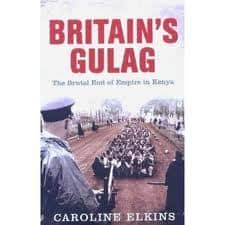
Reviews:
How did they get away with it? By Bernard Potter (London Review of Books, Vol.27, No.5, 3 March 2005)
Imperial Reckoning (Wikipedia.org). Kritik af Caroline Elkins’ bog (amerikansk titel) for at have overdrevet drabene på Mau Mau’erne i genopdragelseslejrene.
My critics ignored evidence of torture in Mau Mau detention camps. By Caroline Elkins (The Guardian, 14 April 2011)
UK documents confirm torture of Mau Mau rebels (The World, April 13, 2011). Interview with Caroline Elkins – Audio and transcript.
Mau Mau and Kenya: An Analysis of a Peasant Revolt. By Wunyabari O. Maloba (Bloomington, Indiana University Press, 1993)
Mau Mau: An African Crucible. By Robert B. Edgerton (London, I.B. Tauris, 1990, 298 p.)
The Mau Mau War in Perspective. By Frank Furedi (London, James Currey, 1989, 239 p.) 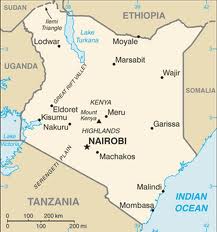
Essays on Mau Mau: Contributions to Mau Mau Historiography. By Rob Buijtenhuijs (Leiden, African Studies Centre, 1982, 224 p.)
Mau Mau from Within: Autobiography and Analysis of Kenya’s Peasant Revolt. By Donald L. Barnett and Karari Njama (New York, Monthly Review Press, 1966, 512 p.)
Se også:
Kenya (Leksikon.org)
27. november 1952
Slansky-processen i Prag afsluttes. De hovedanklagede, heriblandt (den afsatte) generalsekretær for kommunistpartiet Rudolf Slansky, henrettes 3. december 1952.
Se:
- Rudolf Slánský (Denstoredanske.dk)
- Rudolf Slansky (Wikipedia.org)
- Slánský trial (Wikipedia.org)
The Slansky Trial: Stalinism, anti-semitism and conspiracy theories. By Stan Crooke (Workers’ Liberty, 3/36, February 2012)
Litteratur:
Tilståelsen : I Pragprocessens spindelvæv. Af Artur London (Martin, 1971).
Film:
L’Aveu/Tilståelsen/L’Aveu (1970). Instr. af Costa Gavras, m. Yves Montand, Simone Signoret mfl.
Se:
The Confession (1970 film) (Wikipedia.org)
















